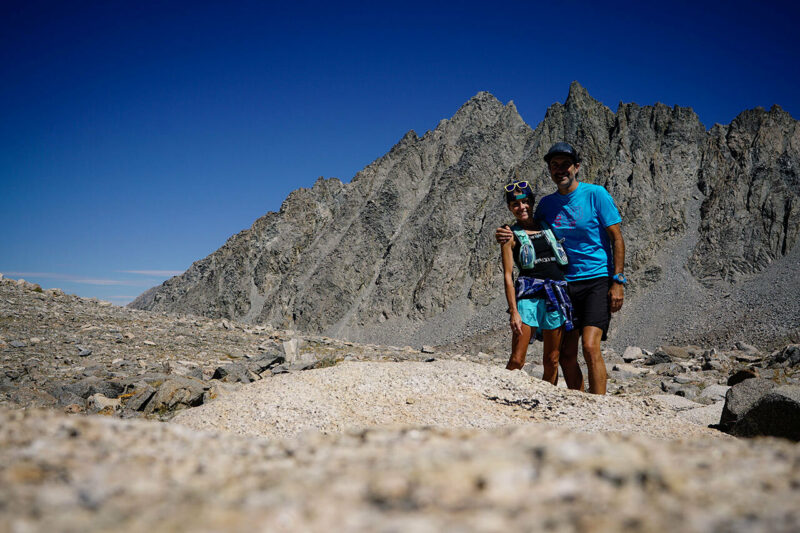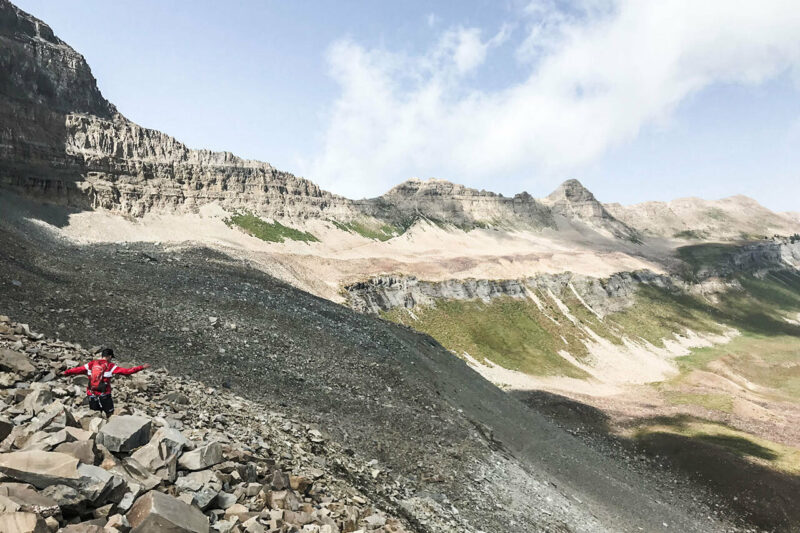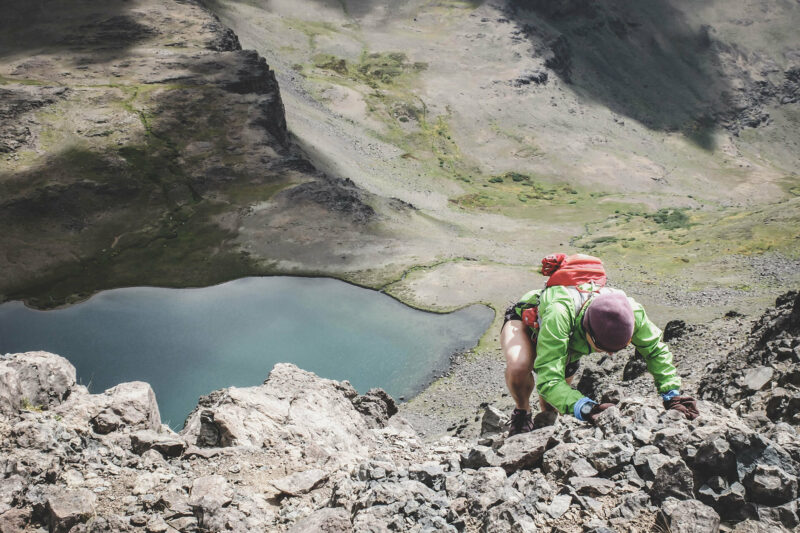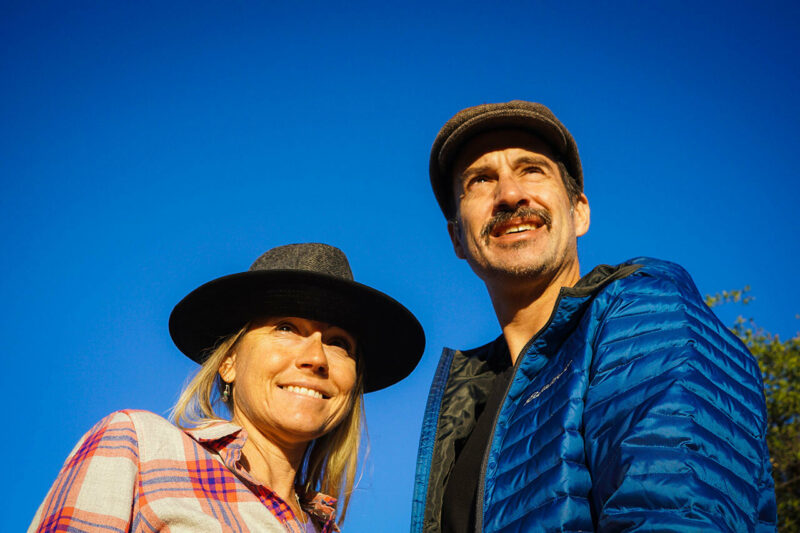Dirty Laundry: Sidetracked
I woke up one morning in June, 2010 and knew without doubt that I was not going to work that day. I knew something had to change urgently.
I’d always been able to get out of bed before, but that morning it seemed impossible, and so between unabashed sobs I called in sick and started reaching out to my closest friends for support. Asking for help was also new to me, but an unexpected positive effect of finally dealing with my deteriorating mental state. I did rouse myself that day, went to a coffee shop to research anywhere livable that resembled the exact opposite of Scottsdale, AZ, determined my financial situation, drafted a resignation letter to my supervisor at work and texted my landlord a thirty day notice to vacate.
Years earlier, or even a month earlier, this kind of aggressive action would have been unthinkable. Growing up I was withdrawn, afraid of attention and, in retrospect, extremely self-critical. It had always been hard to express my emotions, and I rarely let myself feel excited and enthusiastic about anything, nor disappointed and sad. I had a solid group of friends in high school and college, but never really felt like “one of the girls” for some reason, and in every relationship I’d certainly kept my partner at arm’s length. Although I didn’t realize it, I spent my whole life detached and stagnant, avoiding risky opportunities and feeling neither the highs nor lows that other people seemed to experience. I thought this was just me, and that I felt “good enough.” I guess I didn’t really understand what “good” felt like, or that life could be enriched with some of that roller coaster ride I avoided. This type of long-term, low mood is diagnosed now as persistent depressive disorder (PDD), formerly as dysthymia, and since it “is a chronic disorder, sufferers may experience symptoms for many years before it is diagnosed, if diagnosis occurs at all. As a result, they may believe that depression is a part of their character, so they may not even discuss their symptoms with doctors, family members or friends,” (Wikipedia) Luckily, or unfortunately depending on how you look at it, my irregular mental state became hard to ignore during my mid-thirties. Twice a year crying fits turned into monthly, weekly then daily occurrences, my lifelong worrywart tendencies grew to incapacitating, chronic anxiety, and I frequently longed to just disappear to avoid dealing with my less than satisfying life. I felt like I was floating in the middle of an enormous, dark body of water without a shore in sight and no way to get there if I could even envision one.
In addition, one autumn during this bleak period, I suddenly dropped a noticeable amount of weight which probably should have worried me, but instead weirdly offered a focus, something to grasp. If I couldn’t decide on a direction in the rest of my life, if I felt completely lost and unable to take action elsewhere, at least I could control this outer presentation of myself, at least I could make concrete choices as to what did (or mostly did NOT) go into my mouth, and I could deprive myself of pleasure that I knew I didn’t deserve. I was successful at it (finally successful at something!) and so the fear of failure, of going backwards, kept me entombed in an ever-growing list of dietary rules.I did finally seek help, mostly at the urging of a couple of incredibly patient and insistent people in my life, along with my primary care physician. To be honest, I wasn’t sure I wanted to get better. As many who struggle with their mental health can tell you, there is a comfort, a familiarity to your depression, your anxiety and your incessant inner dialogue. Also, I felt guilty. I’d had no history of trauma or real family dysfunction; in fact, life had been good to me. Not only did I not deserve happiness, I didn’t deserve the sadness, either! After a few tries, I found a psychiatrist that didn’t actually make me feel worse and I reluctantly started on an antidepressant which I was convinced would not help. However, even with my resolute opposition to drugs, the Pristiq she prescribed was a lifesaver for me at that point. Within the first week I felt a tremendous weight lift, I stopped sobbing every night when thinking about work the next day, and I was able to take a few action steps that created some momentum toward bigger life changes.
“My weekly running miles skyrocketed and I found success in ultramarathons, but still wasn’t properly fueling and remained tied to my rigid food rulebook.”
Unlike so many struggling with similar despair and anxiety, I functioned fairly well to an outsider’s eye and was almost always able to get outside for a therapeutic run or ride. Fortunately in Arizona this is easy to do year round. In fact running arguably became a drug itself. I escaped daily monotony and despondency at work with runs at lunch when I’d drive as quickly as I could to nearby trails, changing in the car on the way to and from and skipping a real lunch in lieu of an apple and M&Ms at my desk. The 45 minutes out in the dirt and cactus brought immediate, though temporary, relief. I ran more and more, but still fell deeper into unhealthy habits surrounding nutrition, which I regrettably ignored. On a positive note, thanks to the partial relief from paralysis that the antidepressant provided, I enrolled in a yoga teacher certification program, which balanced some of the intensity of the running while still letting my body move, opened my mind to a spirituality that I’d never entertained before and challenged my brain with studies that I missed since college.
The decision to move to Bend that one summer morning was energizing for me. Immediately I wanted to throw all my stuff away and just get in the car and GO. The actual process was of course not that easy, but eventually I got almost everything I owned to into my Honda Fit, with three bikes on top and headed north to a place I’d never been, confident that I was leaving behind a life that didn’t fit me. The PNW did not disappoint; I was able to immerse myself in the trails and live incredibly inexpensively with my few belongings. I stopped taking my antidepressant shortly after leaving AZ, in large part due to the cost without health care, but also feeling stronger and sounder than I ever had.
My weekly running miles skyrocketed and I found success in ultramarathons, but still wasn’t properly fueling and remained tied to my rigid food rulebook. I tried going vegan, while simultaneously developing the trendy fear of carbs, and since I have spent much of my life refusing meat simply because it grosses me out, it was easy to stick with. My digestive system has been irregular and annoying for many years, so I called this an experiment, but really it was probably just one more way of restricting, controlling and depriving. I dropped even more weight, but felt strong most of the time on my runs, so didn’t worry about it. After my stint as a vegan I went through paleo, grain free, gluten free, primal phases, all of which just created stricter restrictions around food. More and more frequently I balked at dining out with friends and found myself wandering around the grocery store having a complete meltdown in my head because there seemed to be nothing left to actually eat. Admittedly this anxiety continues to this day, and often I leave the store empty handed, practically in tears from the stress of it all.
As my years in Bend flew by I noticed my body and mind going through a frustrating cycle: every three months or so I would nosedive into a state of complete depletion – physically and mentally. For a couple weeks my runs sucked, I was demoralized and I craved nourishment but couldn’t really place what kind exactly. Over the last few years I’ve also found myself plagued with injuries that take longer and longer to resolve. Sadly, I suppose the chronic overtraining and under-fueling is simply the only part of my life I can really cling to, that I know how to do, and so the cycle repeats and repeats. Other areas of my life have been consistently unsatisfying and leave me feeling disconnected. Relationships in the past seemed repetitive, obligatory and suffocating. I accepted a stable job in Bend for many years that, though I know was an honorable service in some respects, was not challenging and did not align with my personal priorities. The only time I feel at ease, connected to myself and to something larger, is when I am out on the trails. Often over the last several years I have been feeling an increasing panic I may be slipping back to the uncontrollable melancholy.
Here I am, six weeks into our Dirty Good odyssey still enamored with the lifestyle but of course, still me. As I write this brief account of my personal journey I am hoping not to reinforce and accept my identity as an anxious, depressive, disordered eater but to reveal patterns that have been both destructive and beneficial for me in the past. Some mornings I still wake up inexplicably troubled and panicky. As I mentioned, some (ok, most) days I still allow unhealthy thoughts over food to rage out of control in my head, taking over my mood and behavior. The paralysis over what to do next in any aspect of life creeps in quite a bit, making me testy and over-reactive to events and to my very patient partner in this venture. So, what do I know does in fact help me? What gets me out of my head, out of myself? Clearly outdoor adventures, whether it’s running, riding, hiking or even some campsite yoga is my first go-to. Physical movement and nature-immersion are proven to improve mental health in ways we don’t even understand yet, but absolutely necessary for me. However, learning to moderate and respect my body, and finding other rewarding activities to devote some energy to is crucial for me. I also know that a degree of minimalism is important. Too much junk, too much stimuli overwhelms me and creates more agonizing decisions for me to make. Continuing education, including exercising both creative and intellectual parts of my mind, seems to generate more positive and proactive thoughts. Right now that can mean simply reading various types of literature, exploring new podcasts, or even visiting touristy sites along our unbeaten path just to learn something quirky and new. Basing our travels around wilderness areas we want to experience fosters that deep connection with nature we both already recognize, but we have also found ourselves engaging more with fellow travelers. Though we laugh when other “vanlifers” shoot us a peace sign or other gesture of alliance, it does admittedly feel good to connect with other humans that embrace similar passions and priorities. I continue to grapple with the nutrition aspect of my health; though I know proper nourishment is absolutely key to what happens inside my head I am still having trouble making impressive changes. It’s difficult to try to get away from my need for strict guidelines and try to be more easygoing without creating more rules, though they may be contradictory to the first set… confusing, yes. Life is a process of trial and error, of learning from one another, and of making sense of how we fit into the world. Hopefully our Dirty Good experiments in active movement, curiosity, good eats, connection and essential living can offer some ideas, some courage and some fuel to others along his or her personal journey.





